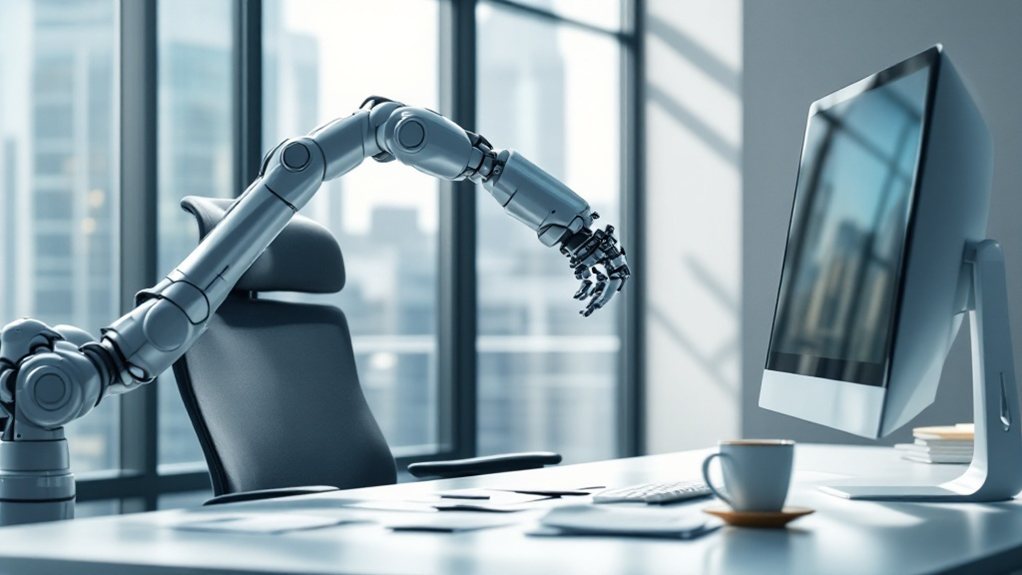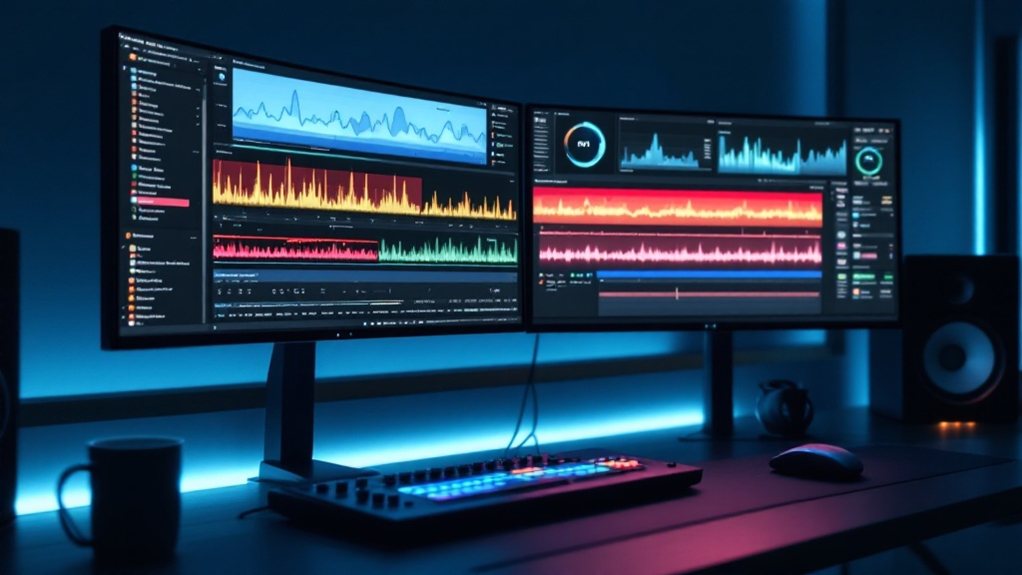Consumer data isn’t exactly safe in AI’s hands. Studies show 57% of people view AI as a major privacy threat, and they’re not wrong – 40% of organizations have already experienced AI-related breaches. Companies are scrambling to protect sensitive information while experts warn about data poisoning and leaks. Despite promises of better security, consumer trust remains low. The digital arms race between privacy protection and AI exploitation continues to intensify, with your personal information caught in the crossfire.

While artificial intelligence continues revolutionizing nearly every aspect of modern life, it’s also raising serious red flags about privacy. Let’s face it – when 57% of global consumers view AI as a significant threat to their privacy, we’ve got a problem. And it’s not just paranoia. A whopping 94% of organizations believe customers would drop them like a hot potato if their data isn’t protected properly.
The numbers tell a pretty unsettling story. With 81% of consumers uneasy about AI companies using their information in unintended ways, trust is clearly in short supply. And who can blame them? Most people can’t even figure out what data these AI systems are collecting about them. It’s like trying to read a book in the dark. A staggering 40% of organizations have already experienced an AI-related privacy breach. Web scraping and sensor data collection make it easier for companies to gather user behavior data without explicit consent.
The experts aren’t exactly optimistic either. A solid 80% of data professionals think AI is making security challenges worse, not better. They’re particularly worried about those chatty large language models spilling secrets and AI-powered attacks. And here’s a fun fact: 55% of experts are losing sleep over sensitive information being exposed through simple user prompts. Whoops. Data poisoning attacks can compromise AI systems by corrupting the training data they learn from.
But it’s not all doom and gloom. Companies are scrambling to fix these issues, with 91% acknowledging they need to step up their game in reassuring customers about AI data usage. Some are turning to data anonymization and encryption – basically putting your information in a digital witness protection program.
Others are implementing AI-powered security systems that can spot potential breaches faster than you can say “privacy violation.”
The future of AI privacy is going to be interesting, to say the least. As regulations like GDPR continue evolving, companies will need to get creative with their privacy protection methods. The irony? They’re using AI to protect us from… AI. The technology is getting smarter, but so are the privacy violations.
It’s a digital arms race, and your personal information is the prize. Welcome to the future – hope you’ve got good passwords.
Frequently Asked Questions
Can AI Systems Be Hacked to Reveal Stored Personal Information?
Yes, AI systems can absolutely be hacked to expose personal data.
Like any digital system, they’re vulnerable to security breaches through encryption weaknesses, poor access controls, or system vulnerabilities.
The kicker? AI systems typically store massive amounts of sensitive data, making them extra juicy targets for cybercriminals.
Model theft, phishing attacks, and good old-fashioned hacking can all compromise stored information.
It’s a hacker’s buffet.
How Often Do AI Companies Update Their Privacy Policies?
AI companies typically update their privacy policies annually at minimum, though many do it more frequently.
Major players like OpenAI and Google revise policies every 6-12 months.
Dynamic changes in AI capabilities force quicker updates.
When new features launch or regulations change – boom, another update.
It’s a constant game of catch-up, really.
Some firms even update quarterly to stay ahead of rapid industry shifts.
What Happens to My Data if an AI Company Goes Bankrupt?
When companies go bankrupt, their data becomes an asset that can be sold to pay creditors.
Pretty scary stuff. The data might end up with the highest bidder – sometimes another tech company, sometimes a data broker.
No guarantees where it lands. While privacy laws offer some protection, bankruptcy courts often prioritize debt settlement over data privacy concerns.
The process is messy, unpredictable, and frankly, not great for user privacy.
Can I Permanently Delete My Information From AI Systems?
Complete data deletion from AI systems? Not exactly straightforward.
While companies like OpenAI offer opt-out forms and account deletion options, the process isn’t perfect. Machine learning models are complicated beasts – they retain traces of training data.
Even with GDPR’s “right to erasure,” total elimination is tough. Takes weeks for basic deletion, longer for deep removal.
Sometimes data lingers like that one ex who won’t go away.
Do AI Systems Share Data Between Different Companies Without User Consent?
Companies do sometimes share data without explicit user consent – it’s an open secret in tech.
While regulations like GDPR require transparency, many AI systems operate in gray areas. They share “anonymized” data, but that’s often a joke since it can be de-anonymized.
Through data brokers and partnerships, companies swap information constantly. Some use technical solutions like federated learning to maintain privacy, but let’s be real – data sharing happens.









